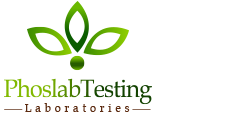Recently, the Department of Environmental Regulation hailed the passing of the new water quality rule by a 3-2 vote from the Environmental Regulation Commission. The new rule will initiate new limitations on 39 toxins and update the currently allowed limitations on 43 other chemicals that are currently being dumped into the rivers and coastal waters […]
Read More- HOME
- Services
- Environmental Testing
- BTEX Testing Services
- Volatile Organic Compound (VOC) Testing
- Total Recoverable Petroleum Hydrocarbons Testing and Analysis
- Pesticide Testing and Analysis
- Polycyclic Aromatic Hydrocarbons Testing
- Hazardous Waste
- Wastewater Testing
- Soil Testing
- TCLP Testing
- SPLP Testing
- RCRA Metals TCLP Analysis
- Agriculture Testing Laboratory
- Brownfield Testing Laboratory
- Mineral Testing Laboratory
- Chemical Testing Laboratory
- Field Sampling
- Phoslab Environmental Consulting
- Resources
- About Us
- Contact Us
- PhosBlog
